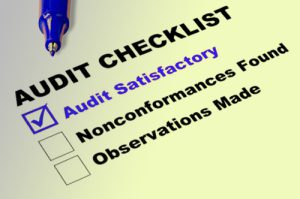 Though the first part of our article series on legal audits focused on a business sale, we mentioned that there are more reasons to consult an attorney for a legal audit. Even the best intentions with a limited liability company, partnership or corporation can lead to serious problems down the road if all of the legal factors are not properly considered in writing in the early stages of a business’ development.
Though the first part of our article series on legal audits focused on a business sale, we mentioned that there are more reasons to consult an attorney for a legal audit. Even the best intentions with a limited liability company, partnership or corporation can lead to serious problems down the road if all of the legal factors are not properly considered in writing in the early stages of a business’ development.
The Pizza Partnership – Best Unlaid Plans
Mario and Luigi were the perfect business match, so it seemed in the beginning. The two brothers decided they were tired of the plumbing business, which turned out to be a lot more trouble than it was worth. Instead they started a pizza shop together. Mario was to be the salesman, since he’d more than proved his skills in that area in the past. Luigi in turn was to be the number cruncher and businessman, since he’d always preferred it to dealing with customers on a regular basis. Having worked together in the past for years, they were confident this business would be a success. Mario had the perfect location planned out, and Luigi put up the funds to secure a down payment on the property. They formed “The Super Brothers” corporation using their accountant, and bought all of the ovens and restaurant equipment with personal guarantees for the credit.
The business was in fact a success for the first few years, until Mario was badly injured in a car accident. Luigi was still capable of keeping the pizza place in business, but was working a lot more hours to make it happen. Then, as it did for so many business owners, the market took a dive. Suddenly the business was not taking in enough money to cover the equipment that Mario & Luigi purchased, never mind to pay its employees. In addition, though Mario was still too disabled to get to work, he needed his regular salary to make ends meet. Soon the pizza place was borrowing a lot of money, and the brothers needed to do something – and quickly. Unfortunately they had run out of savings to put into the operations. While the two were in disagreement about a lot of things, they both thought that finding a third investor was the only option left to keep the doors open.
 Soon Mario located an old college friend who came from family money, Ms. Peach. It didn’t help that Ms. Peach never really got along with Luigi, and soon after, he felt he needed to get out of the business altogether. After looking into the corporate by-laws, however, there was no indication of how or to whom his shares might be sold, or even a mention that he had a ½ interest to begin with. The accountant of course was focused solely on the tax ramifications of the business when she’d recommended the corporation structure. And predictably, without any guidelines Mario and Luigi soon became even more agitated with one another while trying to work out Luigi’s share, how soon it might be sold and how much might be paid to him. Ms. Peach had brought in a large enough amount of cash, but Mario felt that cash was better used to reimburse his own back pay than it was to pay off Luigi. Luigi, of course, didn’t want to walk away from the capital he used to start the business – and wanted his personal guarantees on the business to be released.
Soon Mario located an old college friend who came from family money, Ms. Peach. It didn’t help that Ms. Peach never really got along with Luigi, and soon after, he felt he needed to get out of the business altogether. After looking into the corporate by-laws, however, there was no indication of how or to whom his shares might be sold, or even a mention that he had a ½ interest to begin with. The accountant of course was focused solely on the tax ramifications of the business when she’d recommended the corporation structure. And predictably, without any guidelines Mario and Luigi soon became even more agitated with one another while trying to work out Luigi’s share, how soon it might be sold and how much might be paid to him. Ms. Peach had brought in a large enough amount of cash, but Mario felt that cash was better used to reimburse his own back pay than it was to pay off Luigi. Luigi, of course, didn’t want to walk away from the capital he used to start the business – and wanted his personal guarantees on the business to be released.
Finally the two brothers sought advice from attorneys. At this point they needed two; one attorney for the business and one to represent Luigi in his divestment. With their counsel, Mario and Luigi were able to reach an agreement, though they had both lost thousands of dollars in lost business for some months when the place had shut down, not to mention the recent attorneys’ fees. Luigi was only able to receive about $.25 on the dollar for his share, while Mario forfeited not only his back pay but his salary for months to come.
It is true that a lawyer could not have changed the state of the economy, and could not have prevented Mario’s injury. But the important lesson from this story is that these two brothers, who were an almost perfect partnership to begin with, could not have anticipated all of the turns their business might have taken down the road. A properly drafted set of by-laws with a buy-sell agreement would have handled nearly all of these problems, with only the up-front legal cost and none of the extra stress.
Limited Liability Companies
Attorneys specializing in the formation of business entities will explain many of the details associated with creating an LLC; properly filing for an EIN with the IRS, What to include in the Articles of Organization filed with the State, and of course as described above, specific provisions that should be included in the operating agreement.
But just as important, especially for businesses that need to consider a potential sale, the addition of future members or investors, is whether the LLC is appropriate. For example a business may start out comprised of just 1 member as a sole proprietor, but that sole proprietor may foresee an expansion with a sizable injection of capital from the outside in a few years. Whether to use an LLC or some other entity will depend on many factors, for example:
- How many potential investors may be involved?
- Should the investors have a say in how the business is run?
- Will the investors be able to sell their interests freely to anyone they choose?
- Can the investors cash out of the business at any time?
- Would a loan, rather than an investment be more suitable for this purpose?
Structuring the company appropriately will take care of many issues down the line that can affect the business’s growth or marketability. If the plan therefore is one for future success in the business, these factors should ideally be considered in the beginning.
Leases and Real Estate Interests
 Whether in the position of a landlord or a tenant, it is always advisable to consult an attorney for the negotiation of a lease. The location of a business is often a very crucial element in its operations, so that any interruption of that location by a problem with the lease may be disastrous. Furthermore, a lease for any period of time over a year should be properly recorded so that all third parties may be on notice as to who has legal possession of the premises.
Whether in the position of a landlord or a tenant, it is always advisable to consult an attorney for the negotiation of a lease. The location of a business is often a very crucial element in its operations, so that any interruption of that location by a problem with the lease may be disastrous. Furthermore, a lease for any period of time over a year should be properly recorded so that all third parties may be on notice as to who has legal possession of the premises.
The purchase or sale of real estate is another event where most people, even in a non-business setting, seek an attorney’s help. In a business though, the scope of the transaction makes a legal review all the more important. In addition to satisfying rights attached to the property like assessments and liens, for example, the owner and purchaser need to make sure that rights associated with the property are properly conveyed like permits, licenses, contracts and leases.
A purchaser also needs to keep in mind that local planning (e.g. zoning board) or regulatory (e.g. environmental protection) may have opinions or issues with his or her intended use. A business attorney will be able to effectively research and represent on that buyer’s behalf to resolve any possible issues issues with expediency.
Peace of Mind
We’ve gone over some of the greater details that a legal audit can reveal in a sale situation, and in the early stages of a business’s development. But very simply what an attorney provides is a certain a peace of mind to these processes. The next article in this series will talk about the more traditional ways in which a Massachusetts business attorney’s legal audit can aid a business.




